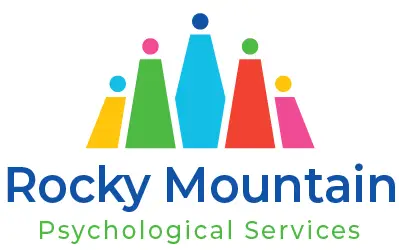In Alberta’s rapidly evolving mental health and educational landscape, the role of psychological assessment training has never been more vital. School psychologists, clinical practitioners, and private clinicians rely on accurate, evidence-based tools to identify learning challenges, cognitive profiles, and behavioural patterns that influence child and adolescent development.
Yet, while foundational knowledge of psychological testing is gained in graduate programs, many practitioners report feeling underprepared when it comes to confidently administering, scoring, and interpreting key instruments in real-world practice.
That’s where Rocky Mountain Psychological Services (RMPS) comes in.
RMPS, based in Calgary, is proud to introduce a specialized, three-part professional training series designed specifically for Canadian psychologists, provisional psychologists, and advanced graduate students:
- WISC-V (Wechsler Intelligence Scale for Children – Fifth Edition) Training
- WIAT (Wechsler Individual Achievement Test) Training
- BASC-3 (Behavior Assessment System for Children – Third Edition) Training
These courses go beyond the basics, offering hands-on, experiential learning in administration, interpretation, and reporting so you can deliver more precise assessments and meaningful recommendations for your clients.
Why These Tools Matter for Canadian Practitioners
Every psychologist knows that quality assessment is both an art and a science. The ability to select, administer, interpret, and integrate multiple measures defines clinical excellence.
Let’s look at why each of these instruments, WISC-V, WIAT, and BASC-3, has become indispensable for Canadian practice.
WISC-V: Understanding Cognitive Strengths and Needs
The Wechsler Intelligence Scale for Children – Fifth Edition (WISC-V) is one of the most widely used instruments for assessing cognitive ability in children aged 6–16.
The WISC-V training or WISC-V CDN is tailored to reflect cultural and linguistic differences, ensuring accurate normative comparisons. It’s used across school systems, hospitals, and private practices to identify cognitive strengths, weaknesses, learning disabilities, giftedness, and neurodevelopmental profiles such as ADHD and autism.
However, interpreting WISC-V results effectively requires more than scoring subtests. It demands nuanced understanding of cognitive theory, test structure, and behavioural observation.
By the end of the workshop, participants gain the confidence to move from test scores to meaningful insights that drive effective interventions.
At RMPS, the WISC-V training is in-person, emphasizing hands-on experience and real-time feedback. Small-group learning (maximum 10 participants) ensures each attendee gains confidence in test administration, scoring, interpretation, and report writing.
Audience & Prerequisites
- Who should attend: Registered Psychologists, Registered Provisional Psychologists, master’s level Clinical, Applied, or Counseling Psychology students
- Prerequisite: Completion of a master’s level introductory course in formal assessment
Part I: Introduction to WISC-V Administration
- Date/Time: March 14–15, 2026 | 9:00 am – 4:30 pm
- Cost: $700 + GST (10% discount for Master’s or PhD students)
- Format: In-person, limited to 10 participants
Learning Outcomes:
- Understand cognitive testing fundamentals: purpose, limitations, and real-world applications
- Explore the history and theoretical foundations of WISC-V
- Administer the test with emphasis on rapport, standardized procedures, and material management
- Hands-on practice with subtests and scoring
- Receive personalized feedback from instructors
Part II: WISC-V Interpretation and Report Writing
- Date/Time: April 18–19, 2026 | 9:00 am – 4:30 pm
- Cost: $700 + GST (10% discount for Master’s or PhD students)
- Format: In-person, limited to 10 participants, follow-up to Part I
Learning Outcomes:
- Score subtests accurately and interpret FSIQ, Index, and Ancillary Scores
- Identify meaningful discrepancies between cognitive domains
- Translate findings into actionable educational and clinical recommendations
- Practice professional report writing and receive feedback
Location:
Rocky Mountain Psychological Services – 110–11 Ave SW, Suite 212
Why RMPS WISC-V Training?
Participants gain confidence, practical experience, and clinical reasoning skills, enabling them to produce accurate, meaningful assessments that inform interventions and educational planning.
WIAT: Linking Cognitive Profiles with Academic Achievement
While the WISC-V provides insight into how a child learns, the Wechsler Individual Achievement Test (WIAT) reveals what they have learned.
The WIAT is a powerful, standardized assessment used to evaluate academic achievement in key areas such as reading, writing, mathematics, and oral language. It is the preferred companion measure to the WISC-V when conducting psychoeducational evaluations.
RMPS in Calgary Alberta offers in-person WIAT training course in Canada, part of the Level 1 Formal Assessment Series, combining theory, practice, and report writing.
Understanding how to synthesize WISC-V and WIAT data helps practitioners make targeted, evidence-based recommendations that guide educational interventions and inform parents and teachers.
Audience & Prerequisites
- Registered Psychologists, Registered Provisional Psychologists, master’s level Clinical, Applied, or Counseling Psychology students, and resource teachers
- Prerequisite: Completion of a master’s level introductory course in formal assessment
Learning Objectives
- Administer and score the WIAT efficiently and accurately
- Interpret results in relation to cognitive data (e.g., WISC-V)
- Identify patterns of academic strengths and challenges
- Write clear, meaningful, and client-friendly professional reports
- Integrate results into IEP or intervention planning
Schedule & Cost:
- 2025: October 18 | 9:00 am – 4:30 pm
- 2026: May 9 | 9:00 am – 4:30 pm
- Cost: $350 + GST (10% discount for Master’s or PhD students)
- Format: In-person, limited to 10 participants
Location:
Rocky Mountain Psychological Services – 110–11 Ave SW, Suite 212
Why RMPS WIAT Training?
Participants leave confident in connecting academic and cognitive data, producing actionable recommendations that improve student outcomes.
BASC-3: Assessing Behaviour and Emotional Functioning
The BASC-3 is essential for evaluating behavioral, emotional, and social functioning in children and adolescents. Accurate interpretation guides interventions, therapy planning, and school-based support.
In Calgary, RMPS offers a virtual BASC-3 training course in Canada, part of the Level 1 Formal Assessment Series, emphasizing practical interpretation and professional report writing.
Audience & Prerequisites
- Registered Psychologists, Registered Provisional Psychologists, master’s level Clinical, Applied, Educational, or Counseling Psychology students, and resource teachers
- Prerequisite: Completion of a master’s level introductory course in formal assessment
Learning Objectives
- Understand what BASC-3 measures and its clinical relevance
- Interpret scores accurately and identify behavioral trends
- Write professional reports with actionable recommendations
- Apply findings to support interventions, school planning, and therapy strategies
Schedule & Cost:
- 2025: November 3 | 9:00 am – 12:00 pm
- 2026: June 1 | 9:00 am – 12:00 pm
- Cost: $175 + GST (10% discount for Master’s or PhD students)
- Format: Virtual, small groups for hands-on practice
Location:
Rocky Mountain Psychological Services – 110–11 Ave SW, Suite 212
Why RMPS BASC-3 Training?
Participants gain the ability to translate behavioral data into meaningful interventions, enhancing client outcomes in clinical, school, and private practice contexts.
ABAS-3: Assessing Adaptive Functioning with Confidence
The Adaptive Behavior Assessment System – Third Edition (ABAS-3) is an essential tool for evaluating adaptive skills and daily functioning across the lifespan from children to adults. These skills are critical for understanding how individuals manage everyday demands at home, school, work, and in their communities.
For psychologists in Alberta and abroad, learning to interpret and communicate ABAS-3 results effectively is key to supporting diagnoses, intervention planning, and progress monitoring, particularly in cases involving developmental disorders, intellectual disabilities, or adaptive skill delays.
At RMPS, the ABAS-3 course provides foundational training in administration, interpretation, and reporting, helping clinicians and students integrate adaptive functioning data into comprehensive psychological assessments.
Audience & Prerequisites
- Who should attend: Registered Psychologists, Registered Provisional Psychologists, and master’s level Clinical, Applied, Educational, or Counseling Psychology students, as well as resource teachers and allied professionals.
- Prerequisite: Completion of a master’s level introductory course in formal assessment.
Learning Objectives
- Understand what the ABAS-3 measures and why adaptive behavior is critical for diagnosis and intervention.
- Learn administration and scoring procedures for parent, teacher, and self-report forms.
- Interpret conceptual, social, and practical domain scores within the context of cognitive and behavioral assessments.
- Integrate ABAS-3 findings with tools such as the WISC-V, WIAT, and BASC-3 to form a holistic view of a client’s functioning.
- Practice writing clear, concise interpretations and recommendations in professional reports.
Schedule & Cost
- 2025: November 3rd | 9:00 am – 12:00 pm
- 2026: June 1st | 9:00 am – 12:00 pm
- Cost: $175 + GST (10% discount for Master’s or PhD students; non-cumulative)
- Format: Virtual, limited enrollment for personalized feedback
Location:
Rocky Mountain Psychological Services – 110–11 Ave SW, Suite 212
Enroll Now
Why RMPS ABAS-3 Training?
Unlike general webinars, the RMPS ABAS-3 course provides interactive, guided learning with practical application. Participants not only gain the technical know-how to administer and interpret the ABAS-3 but also learn how to:
- Identify patterns of adaptive strength and weakness relevant to DSM-5 diagnoses.
- Support diagnostic assessments for Autism Spectrum Disorder, ADHD, and Intellectual Disability.
- Communicate results effectively to parents, educators, and interdisciplinary teams.
- Integrate adaptive behavior data into treatment planning and school recommendations.
With expert-led instruction and real-world case examples, this course empowers psychologists to confidently use adaptive assessment as part of comprehensive psychological evaluations.
The RMPS Difference: Training Designed by Practitioners, for Practitioners
What sets RMPS apart is our commitment to practical, applied learning. Our workshops are taught by experienced registered psychologists who understand the Canadian context of psychological assessment. Its ethical, cultural, and professional dimensions.
What You’ll Experience:
- Hands-On Learning: Participants will practice administration, scoring, and interpretation in small groups.
- Real Case Examples: Learn through authentic case data and sample reports.
- Canadian Context: All materials, norms, and discussions are tailored to the Canadian professional environment.
- Collaborative Setting: Network with peers and receive feedback from experienced clinicians.
- Reporting Focus: Each course emphasizes how to write strong, professional psychological reports that meet Canadian practice standards.
Our goal is not only to teach test administration, but to ensure participants leave feeling confident in clinical reasoning, ethical application, and communication of results.
Who Should Attend
This training series is designed for:
- Registered Psychologists in Canada seeking to update or refresh assessment skills
- Registered Provisional Psychologists looking to gain confidence and competence in standardized assessment
- Graduate Students in psychology who have completed introductory assessment coursework
- School Psychologists and Clinicians working with children, adolescents, or young adults
If you’re working in a school, clinical, or private practice setting and want to elevate your assessment proficiency, these workshops are for you.
Learning Outcomes
By completing the RMPS WISC-V, WIAT, and BASC-3 training series, participants will:
- Demonstrate confidence in administering and scoring each instrument
- Interpret results in line with Canadian norms and best practices
- Integrate multiple assessment data sources into cohesive, client-centered reports
- Formulate accurate diagnostic impressions and practical recommendations
- Communicate results effectively with clients, families, educators, and interdisciplinary teams
This professional development opportunity ensures that your assessments are accurate, ethical, and impactful, hallmarks of excellence in psychological practice.
Why Canadian Psychologists Are Choosing RMPS
Canada-Specific Training
Our trainers understand the unique educational systems, multicultural considerations, and regulatory frameworks that influence psychological assessment training in Canada.
Evidence-Based Instruction
Each module is grounded in current research and Canadian Psychological Association (CPA) best practice guidelines.
Experienced Trainers
Learn from seasoned psychologists with years of applied experience in assessment, supervision, and professional development.
Supportive Learning Community
We maintain small class sizes to encourage participation, mentorship, and peer connection.
Flexible Delivery
Choose from in-person or hybrid options depending on your location and schedule.
At RMPS in Calgary, we don’t just teach you how to administer tests, we help you understand why results matter and how they inform real-world interventions.
Registration and Logistics
Course Structure
Each of the three courses can be taken individually or as part of the full training series.
- Format: In-person or hybrid learning
- Duration: Typically 1–2 full days per instrument
- Location: RMPS training facility (details available on our website)
- Capacity: Limited seats to ensure a personalized learning experience
- Materials: Participants receive course notes, scoring resources, and sample reports
Prerequisites
Participants should have completed at least one graduate-level course in psychological assessment. A working knowledge of psychometric principles is recommended.
Certification
Upon completion, participants receive a Certificate of Completion from RMPS, documenting their professional training hours for continuing education purposes.
The Professional Impact
The benefits of mastering the WISC-V, WIAT, and BASC-3 extend far beyond technical competence. By developing advanced assessment skills, you can:
- Expand your clinical services and attract new clients
- Increase accuracy in diagnosis and intervention planning
- Enhance collaboration with educators, parents, and allied professionals
- Boost your professional credibility and confidence
- Contribute to improved outcomes for children and adolescents
In a field where evidence-based assessment is the foundation of effective practice, advanced training is both a career investment and an ethical commitment to excellence.
Join the Next Cohort
Spaces in the RMPS training series are limited to maintain high-quality instruction and individual attention.
To register or learn more, visit rmpsychservices.com or contact us directly for upcoming course dates, pricing, and group registration options.
If you’re an experienced practitioner looking to further advance your skills or a provisional psychologist eager to build competence, the RMPS WISC-V, WIAT, and BASC-3 Training Series will help you advance your practice with confidence, precision, and professionalism.
Closing Note
The best psychologists never stop learning. As assessment science continues to evolve, investing in advanced training ensures you remain at the forefront of professional competence.
By choosing RMPS in Calgary, you’re not just attending another workshop. You’re joining a community of practitioners committed to clinical excellence, ethical practice, and evidence-based assessment.
So, take the next step in your professional journey with us now.
Advance your practice today with RMPS’s WISC-V, WIAT, and BASC-3 training series, and transform the way you assess, interpret, and support your clients.


